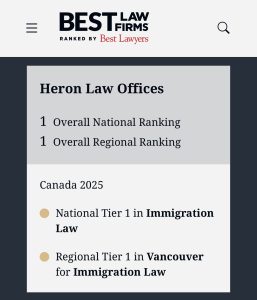Recently, I received a data set from IRCC which tracks the total numbers and outcomes of litigations in the Federal Court. This is important, because the Federal Court itself has indicated that it does track these statistics as their system are unable to do so. From the Bar side, there is nobody tracking – so really, IRCC is the only source of this data.
This data is likely also a key input their decision-making systems and litigation strategy.
We have this data from January 2018 to June 2023. I have shared some of the preliminary analysis (thank you Excel “Analyze Data” tool) on both Linkedin and Twitter.
In this post, we will look at the three countries leading the litigation volume (India, Nigeria, and Iran) and take a look at the respective outcomes for citizens of each respective country.
Before, we begin, it is important to look at total numbers:
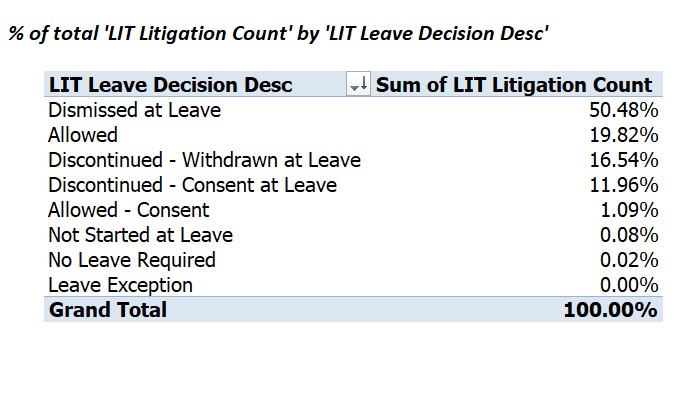
Further breaking down the stats to three file types – Visa Officer Refusals versus RPD and RAD judicial reviews, we also see some differences:
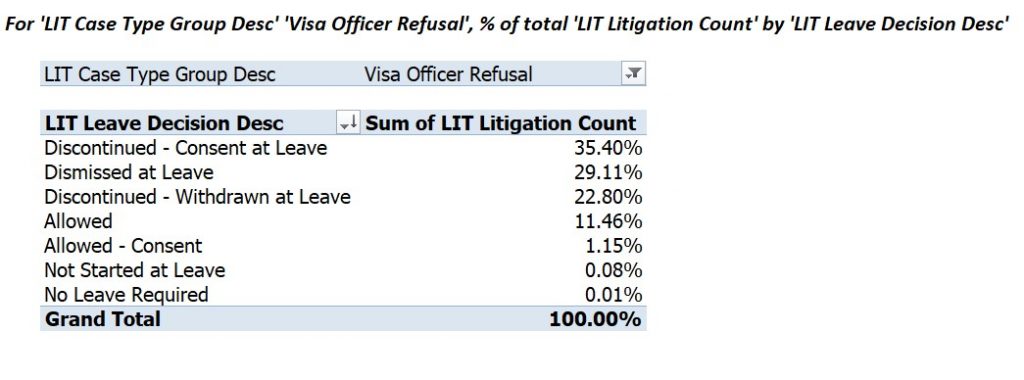
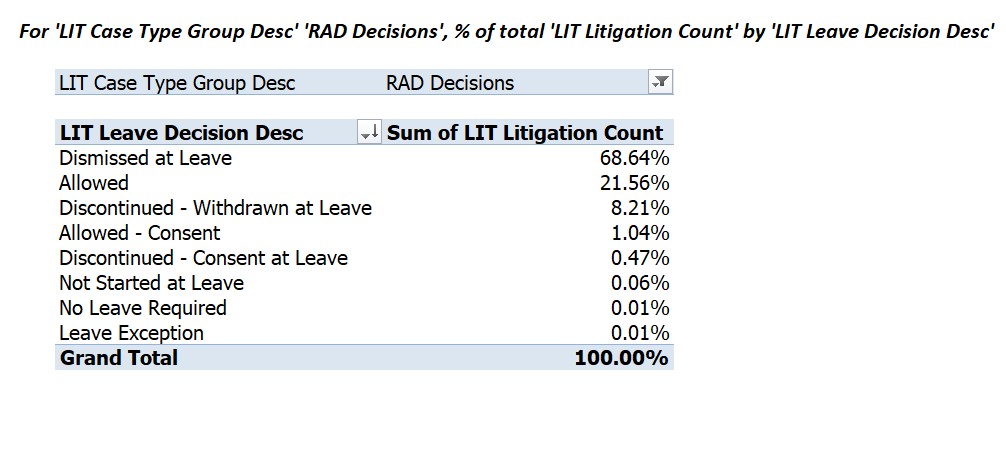
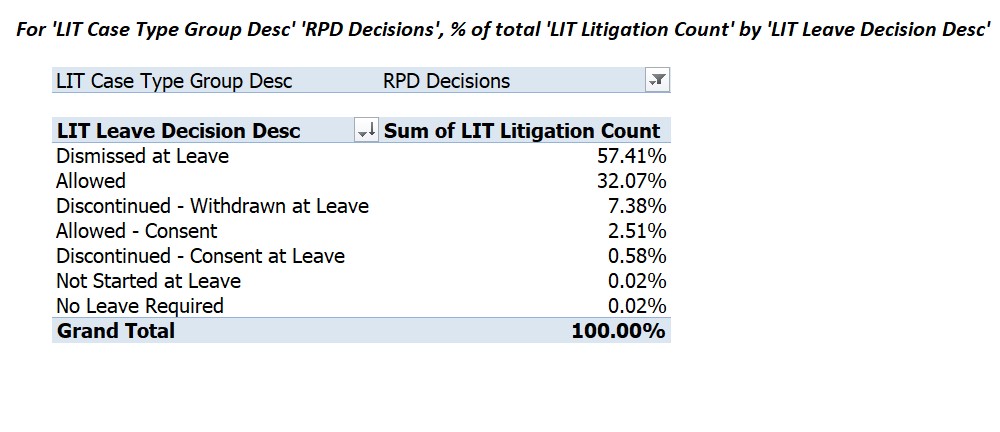
Country of Citizenship Discrepancies
But let’s move now to the three different countries and look at discrepancies as well as the file types as this can help give us more insight:
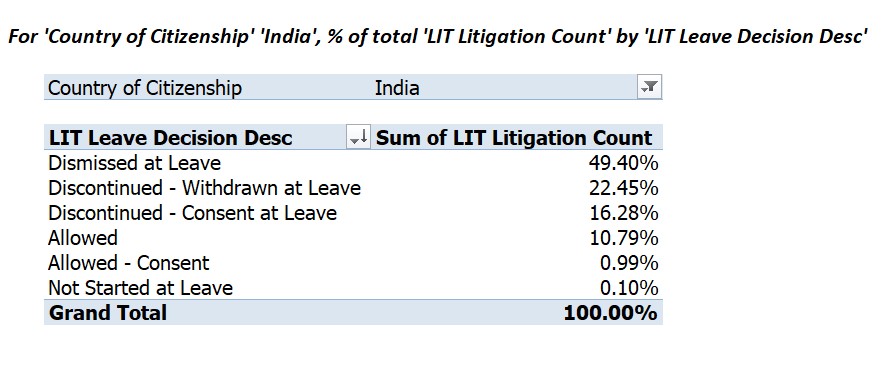
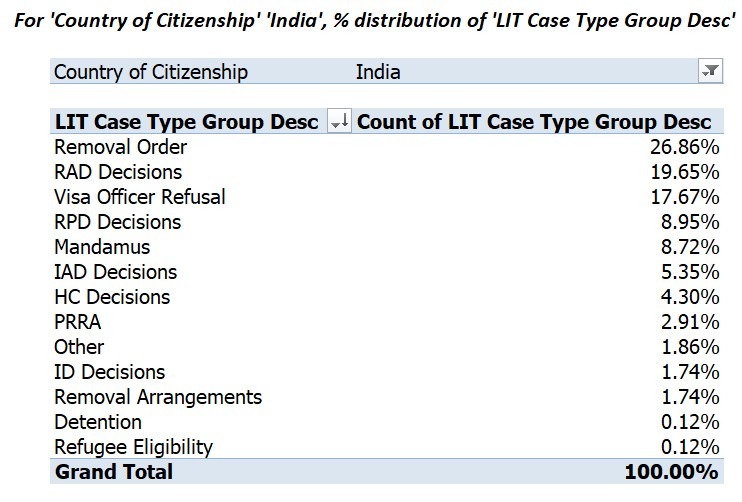
With India, removal order cases are the most common at 26.86% followed by RAD Decisions at 19.65% and Visa Officer Refusals at 17.67%.
Now, is the interesting one – Iran.
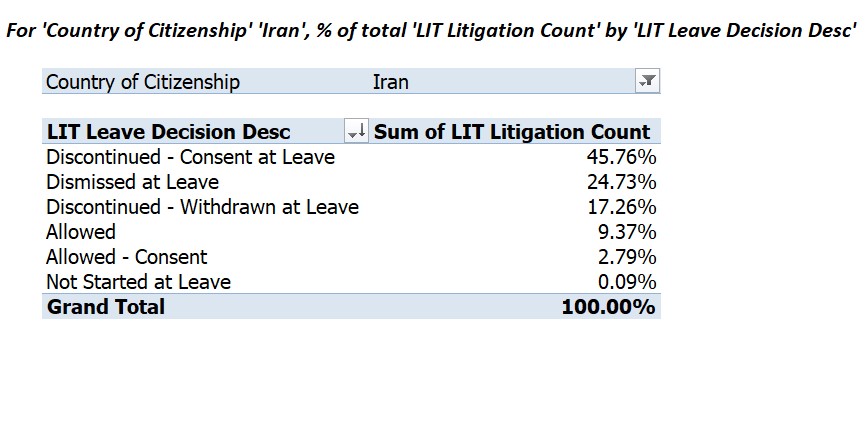
This makes a bit more sense once we look at file types for Iran:
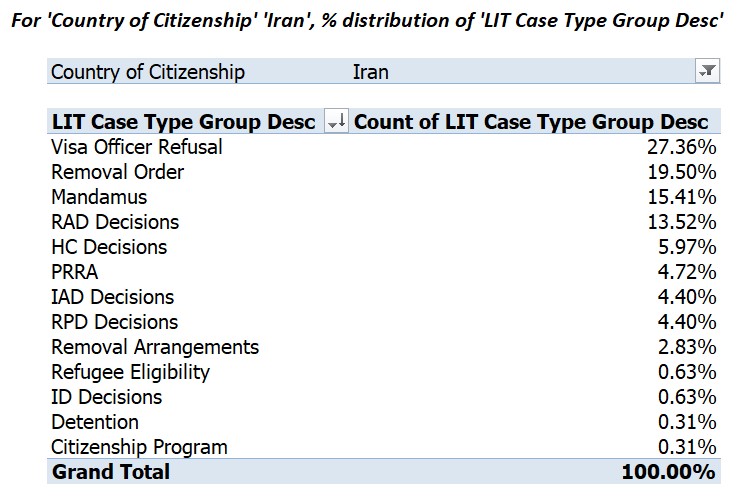
Visa Officer Refusals and Mandamus cases makea up a huge nearly 43% of all cases – and these ones are likely more amenable to consent before leave.
Now let’s take a look at our final example, Nigeria:
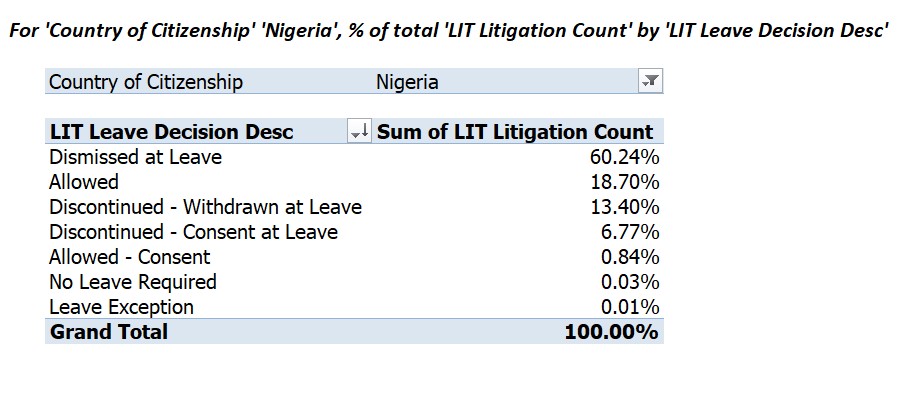
Nigeria has a much higher than average dismissal at leave rate and much lower Consent at Leave Rate.
When we look at the file types, we can futher insight into this:
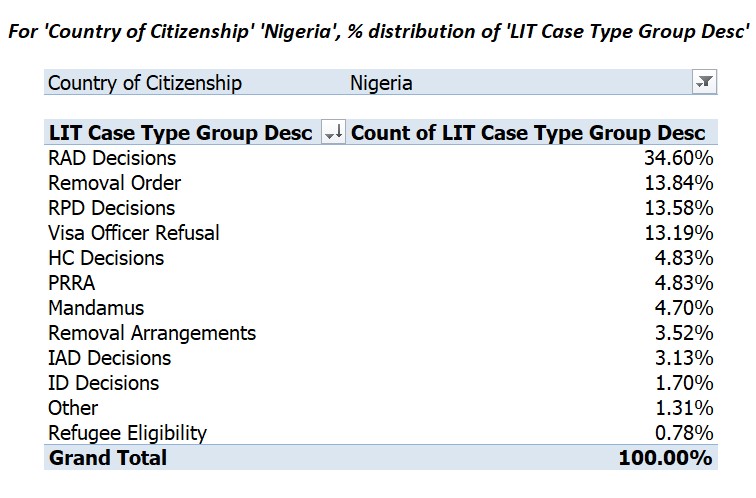
RAD/Removals/and RPD matters make up 60% of all cases and these are ones that are more likely contentious. However, I cannot eliminate other factors that may make up the higher refusal rate and certainly a critical analysis should be performed. I do not think we collectively still understand how things such as name or country identifiers on a file can influence decision-making, although I understand bias training does occur at various Tribunal and Court levels.
Preliminary Data Only
This data obviously is just a selection and will need much more analysis. Some of the classification categories are not clear and will require clarification.
I do hope to share the full document shortly, but I am doing consultations with data analysts, academic scholars, the Federal Court, and stakeholders to make sure we treat it the right way. In my ideal world, this data is made transparent and can be used to help train and audit decision-making for bias. However, the flipside of future decisions reinforcing the discrepancies in the name of consistency is real. There are major policy implications arising from the release and study of data such as this.


